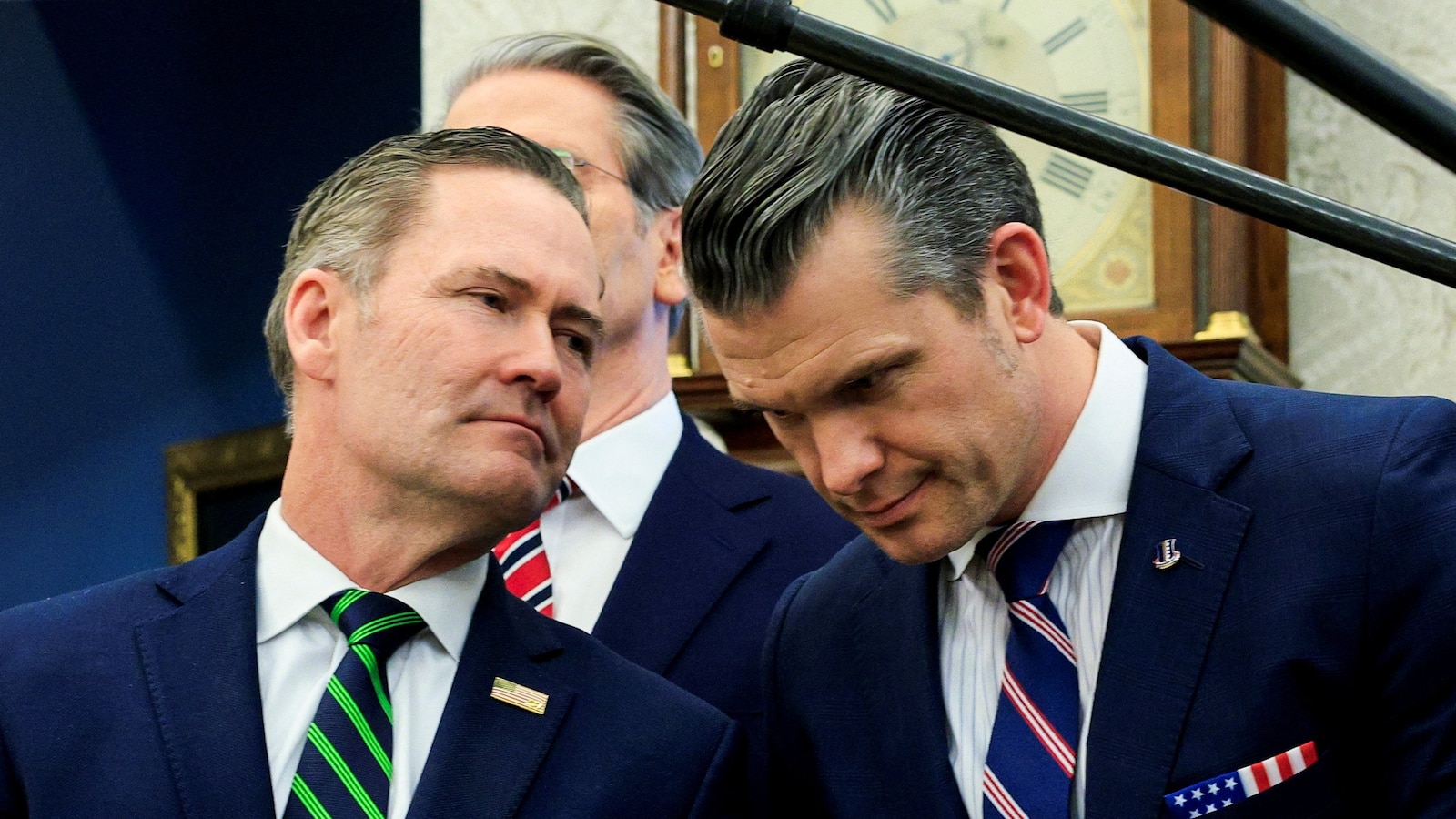Insights from Trump’s Inner Circle: Navigating the Classified Information Controversy
The handling of classified information has been a contentious issue during and after Donald Trump’s presidency. Insights from Trump’s inner circle reveal not only the complexities surrounding this matter but also the political ramifications that continue to unfold. As key administration officials address the topic, their perspectives provide a window into the challenges and implications of managing sensitive information in a highly scrutinized environment.
Understanding the Controversy
The controversy surrounding classified information became particularly pronounced when Trump left office. The handling of sensitive materials raised questions about national security, compliance with regulations, and the responsibilities of those in power. The former president’s approach, as articulated by his advisers, painted a picture of a leader who believed he had the authority to declassify information at will. This belief was not just a personal conviction but one that seemed to resonate with several members of his administration.
The Role of Key Officials
Trump’s inner circle included a variety of personalities, each bringing their own viewpoint to the issue of classified information. Figures like former National Security Advisor John Bolton, former Chief of Staff Mark Meadows, and former Press Secretary Kayleigh McEnany have all commented on the president’s handling of sensitive data.
- John Bolton: Bolton has been vocal about his concerns regarding Trump’s cavalier approach to classified materials. He emphasized the importance of maintaining a stringent process for handling such information to safeguard national security.
- Mark Meadows: Meadows, however, offered a contrasting perspective, suggesting that Trump’s approach was more about transparency and less about defying protocol. He indicated that Trump sought to empower the public with information he believed was unjustly withheld.
- Kayleigh McEnany: McEnany defended Trump by asserting that the former president’s intentions were rooted in his commitment to the American people. She argued that his declassification decisions were made to foster trust and transparency.
This divergence in views among Trump’s closest aides illustrates the multifaceted nature of the classified information debate. While some stress the need for adherence to established protocols, others advocate for a more flexible interpretation of the rules under certain circumstances.
The Legal Implications
The legal ramifications of mishandling classified information are severe. Under the Espionage Act and various other statutes, unauthorized disclosure of sensitive materials can lead to criminal charges. This reality looms large over the discussions held by Trump’s advisers. The former president himself has faced scrutiny over allegations of taking classified documents to his Mar-a-Lago estate, raising concerns about potential violations of federal law.
Trump’s Justifications
In defense of his actions, Trump has frequently claimed that as president, he had the absolute right to declassify information. This assertion has been echoed by some members of his inner circle, who believe that the former president’s unique position granted him broader authority than typical government officials. This belief, however, has not settled the legal questions lingering around the proper handling of classified materials.
The Political Landscape
Insights from Trump’s inner circle also reflect the broader political environment in which these discussions are taking place. The handling of classified information is not merely a legal issue; it has become a key talking point in the ongoing political discourse. As investigations continue and the political climate remains charged, the implications of these discussions extend beyond Trump’s presidency.
- Public Perception: The way the public perceives Trump’s handling of classified information can significantly impact future elections and the Republican Party’s strategy. Many supporters view the allegations as politically motivated attacks, while detractors see them as evidence of a disregard for national security.
- Party Unity: The controversy has implications for party unity as well. Some Republicans rally around Trump, seeing him as a victim of a biased system, while others express concern over the long-term effects of his actions on the party’s credibility.
Looking Ahead
As the political landscape evolves, the insights from Trump’s inner circle regarding classified information will remain relevant. The debate is far from over, and the implications of their statements could influence future governance, party dynamics, and public trust in leadership. Understanding these perspectives is crucial for anyone trying to navigate the complexities of contemporary American politics.
The Importance of Transparency
One key takeaway from the various insights is the importance of transparency in government. While the handling of classified information is inherently sensitive, the demand for accountability and clarity from elected officials is paramount. This demand is likely to shape how future administrations approach the delicate balance of maintaining national security while fostering public trust.
Conclusion
In summary, the insights from Trump’s inner circle regarding the handling of classified information reveal a landscape fraught with complexity and political significance. As former officials articulate their views, it becomes clear that this issue transcends mere legalities; it encompasses questions of ethics, accountability, and the responsibilities of those in power. As we move forward, the ramifications of these discussions will undoubtedly continue to resonate in the political arena, influencing both public perception and the trajectory of future leadership.
Ultimately, navigating the classified information controversy will require a delicate balance of legal adherence, ethical responsibility, and a commitment to transparency. As the nation observes the unfolding events, the lessons learned from this chapter may well inform the governance of tomorrow.
See more BBC Express News

